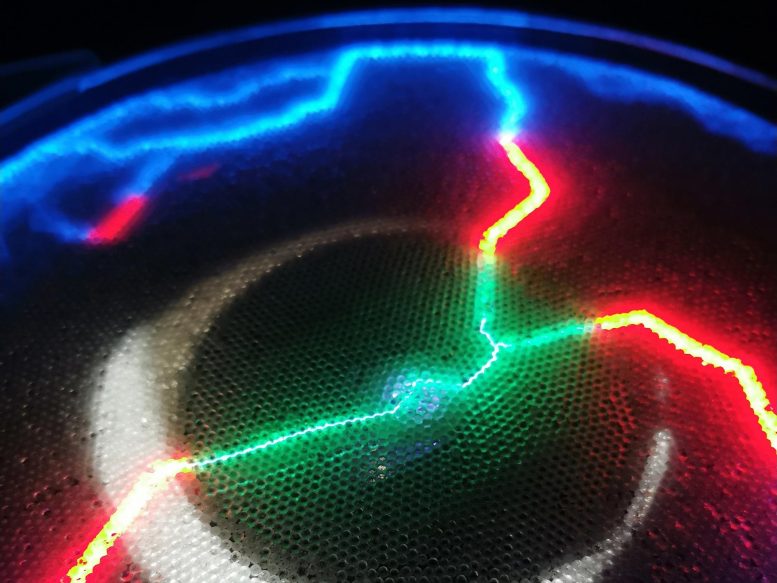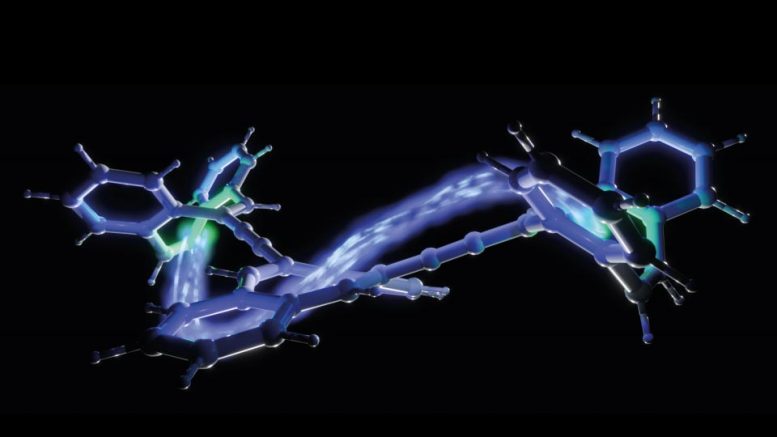
Researchers at Lund University in Sweden have succeeded in developing a simple hydrocarbon molecule with a logic gate function, similar to that in transistors, in a single molecule. The discovery could make electric components on a molecular scale possible in the future. The results are published in Nature Communications.
Manufacturing very small components is an important challenge in both research and development. One example is transistors – the smaller they are, the faster and more energy efficient our computers become. But is there a limit to how small logic gates can become? And is it possible to create electric machines on a molecular scale? Yes, perhaps, is the answer from a chemistry research team at Lund University.
“We have developed a simple hydrocarbon molecule that changes its form, and at the same time goes from insulating to conductive, when exposed to electric potential. The successful formula was to design a so-called anti-aromatic ring in a molecule so that it becomes more robust and can both receive and relay electrons,” says Daniel Strand, chemistry researcher at Lund University.

Illustration of electrons transferred between aromatic and non-aromatic rings in a hydrocarbon molecule. Credit: Daniel Strand/Jonas Ahlstedt
Many organic molecules consist of aromatic benzene rings, ie flat rings made up of six carbon atoms. A simple example is
Source: SciTechDaily